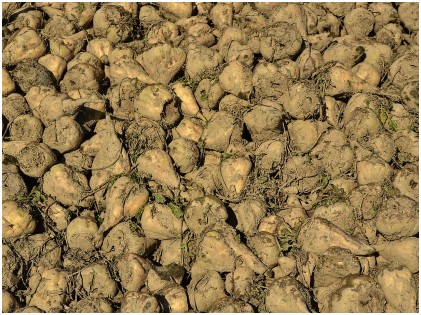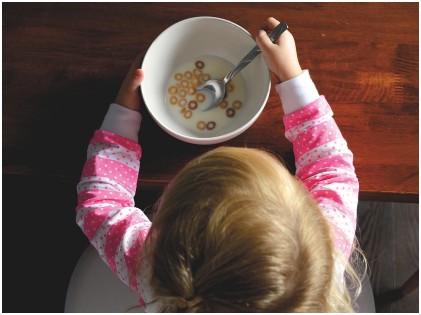
This Is How You Can Teach Your Kids To Stop Wasting Food

You probably have no idea how much food is wasted by humans each year. The recent statistics reveal that one-third of the entire world’s food supply goes to waste. This is the harsh reality even though 690 million stay hungry across the globe. This amount of food wastage has a catastrophic human cost. All is lost, then? Not yet. It is possible to control the situation if you help your kids imbibe some good habits as far as food usage is concerned. By learning anti-food waste practices, the kids can responsibly manage food and find ways that will positively impact the environment. Following are those habits you can teach your kids right from their childhood.
Food Conservation

If you teach your kids the habit of food conservation in the form of a game, they will take a liking to it and learn its importance. Food tray designs that look like board games are available online. The toddlers will have a great time creating a journey resembling Candy Land, starting from vegetables and ending at desserts.
There is also an abundance of eating games that your kids will love, and you won’t require any special equipment here. Bring in a few foods that will give special powers to the little ones to make them feel like superheroes. Assign X-ray vision to carrots, strength to broccoli, so on and so forth. All these would make learning quite interesting.
Include Ugly Veggies and Fruits
 Due to not having a perfect look, plenty of vegetables and fruits get wasted every day. You will find grocery stores and farmers’ markets selling the so-called ugly products at low prices. However, there can’t be any denial that these products have immense health benefits. You can cook these veggies and fruits at home for two very basic reasons.
Due to not having a perfect look, plenty of vegetables and fruits get wasted every day. You will find grocery stores and farmers’ markets selling the so-called ugly products at low prices. However, there can’t be any denial that these products have immense health benefits. You can cook these veggies and fruits at home for two very basic reasons.
First, you are getting all the health benefits that these items provide at a much lower cost than the other products available on the market. Secondly, you give your kids the valuable lesson that they should never judge anything or anyone just based on their appearance. After your children get used to this practice, they will enjoy eating them and refrain from wasting them.
Save the Leftovers
Throwing the leftover food in the trash can be frustrating. Whenever your kids finish eating, and you still have some of the food left on their plates, try to pack it into a container. You can set it aside for later consumption. If your kid feels hungry for an afternoon snack some hours later, you would already have an option ready at hand. If the situation turns out to be worse, you can put the food in the compost. Aside from that, you can use the leftover for cooking a new item and teaching the little ones how to utilize the food they left into a tasty meal.
Snack Time Should Never Be Meal Time
 If you allow your kids to eat snacks before they have their dinner, you will ruin their appetite. As a result, they will have their stomach full, and thus, food will go to waste at the dinner table. Try to limit their snack consumption and focus on helping them eat something healthy when they are hungry.
If you allow your kids to eat snacks before they have their dinner, you will ruin their appetite. As a result, they will have their stomach full, and thus, food will go to waste at the dinner table. Try to limit their snack consumption and focus on helping them eat something healthy when they are hungry.
Healthy snacking is not harmful at all. The main purpose of imbibing this habit is to bring down the thoughtless consumption of food, eventually leading to food wastage. Make your kids realize that their small habits can feed a hungry person.
You Have to Be a Role Model
Practice before preaching. It’s an old saying and is true to the core. Children watch their parents waste food and throw it into the dustbin or let the vegetables rot. And they are bound to pick that habit up and continue wasting food. As parents, you have to be their role models. It is your responsibility to teach them the significance of not wasting food and incorporating responsible food usage in their lifestyles.
In today’s times, you get plenty of opportunities to imbibe low wastage habits. If you have leftover food, don’t throw them in the bin. Rather, store them in resaleable containers to fill the stomach of someone hungry. And you would be doing your bit to reduce food wastage.
More in Business & Investments
-
`
WWE SmackDown to Make a Comeback on USA Network in 2024
In a surprising twist, WWE’s Friday night staple, “SmackDown,” is bidding farewell to Fox and heading back to its old stomping...
November 24, 2023 -
`
Why Women Face Higher Out-of-Pocket Health Expenses
In healthcare, disparities persist, and a recent report from Deloitte underscores a significant financial gap between working women and men in...
November 18, 2023 -
`
Elon Musk vs Bill Gates: The Clash of Titans
In the realm of the world’s wealthiest individuals, a simmering rivalry has been captivating public attention. It’s not a clash of...
November 7, 2023 -
`
The Power Of Disconnecting
In our digitally driven age, where smartphones, tablets, and laptops have become extensions of ourselves, disconnecting might seem daunting. However, the...
October 31, 2023 -
`
JCPenney’s Bankruptcy: The End of an Era
JCPenney filed for bankruptcy in a move echoing the struggles of many retailers in the wake of the COVID-19 pandemic. This...
October 26, 2023 -
`
Reasons Why You Need a Financial Plan
Financial planning is not just for the wealthy or those nearing retirement. It’s a crucial tool for anyone seeking financial security...
October 19, 2023 -
`
How Brad Pitt Spends His Millions All Over the World
Brad Pitt, the charismatic Hollywood superstar, has left an indelible mark on the silver screen and made an impact in the...
October 10, 2023 -
`
Gen Z’s Posh Palate: The Unexpected Rise of Caviar Culture
Amid the backdrop of a digital era buzzing with viral dances, e-sports, and niche memes, there emerges a peculiar plot twist:...
October 7, 2023 -
`
Transform Your Retail Business With Social Media Mastery
If you’re a retail marketer posting your social media messages haphazardly, you might be missing out on prime opportunities to turn...
September 26, 2023















You must be logged in to post a comment Login